Titbits and News from the Mare Nostrum
Dynasties. The First Kingdoms of Prehistoric Europe Exhibition
Dynasties. 'The First Kingdoms of Prehistoric Europe Exhibition' was held at the Archaeological Museum in Alicante from August until October 2024. The exhibition concentrated on the bronze age cultures of El Argar in the Iberian Peninsula, the Unetice Culture in central Europe and the Otomani-Fuzesabony Culture in the Carpathian basin.
By Nick Nutter on 2024-05-9 | Last Updated 2025-05-20 | Titbits and News from the Mare Nostrum
This article has been visited 3,642 times

Dynasties. The First Kingdoms of Prehistoric Europe Exhibition
The Bronze Age: A Time of Trade, Power, and Innovation in Europe
The Bronze Age, spanning roughly from 3300 to 1200 BC, witnessed a significant shift in European prehistory. While copper was readily available, tin, the other crucial component for bronze, was scarce and only found in specific regions. This scarcity fuelled the rise of extensive trade networks across Europe as early as the Early Bronze Age. Control over these resources, as well as transportation routes, became a key factor in the emergence of social stratification, with ruling elites wielding significant power. This era also saw the invention of the sword, a weapon designed specifically for warfare.
Do you enjoy my articles? For your reading pleasure, this website does not carry third party ads. You could help me write more articles by buying me a cup of coffee.
Centres of Power and Technological Advancements
Central Europe during the Early Bronze Age was dominated by the Unetice Culture. This period is marked by richly furnished burial mounds like Leubingen and Helmsdorf, highlighting the wealth and status of the elite. The Nebra Sky Disk, a remarkable astronomical tool, further highlights the advanced knowledge possessed by these leaders. Additionally, large hoards of axes discovered from this era suggest the presence of organized armies.
Beyond Central Europe


Hoard of Bronze Axes
While Central Europe flourished, other regions like the Iberian Peninsula (El Argar Culture) and the Carpathian Basin (Otomani-Fuzesabony Culture) also witnessed the rise of powerful centres.
A Glimpse into the Past: 'Dynasties' Exhibition
The exhibition, "Dynasties. The First Kingdoms of Prehistoric Europe", was held at the Museo Arqueologico Provincial de Alicante (MARQ) in Spain, offered a fascinating exploration of these early European power structures. The exhibition, a collaborative effort between MARQ and the State Museum of Prehistory in Halle (Saale), Germany, displayed exceptional finds from Central Europe, including a sword from the Nebra Sky Disk hoard. This exhibition built upon the success of previous displays at the British Museum and the Drents Museum Assen.
Highlighting the Nebra Sky Disk


Nebra Sky Disc
The Nebra Sky Disk, discovered near Nebra, Germany, is a true archaeological treasure. Dating back to the Early Bronze Age, this remarkable artifact highlights the astronomical knowledge of the Unetice Culture. Its inclusion in UNESCO's Memory of the World Register in 2013 underscores its cultural significance.
Treasures from Leubingen


Mould and bronze spearhead
Another highlight of the exhibition is the inclusion of grave offerings from the princely tomb of Leubingen. This impressive burial site, excavated in the late 19th century, revealed a wealth of grave goods, including bronze weaponry, gold jewellery, and a Neolithic axe. These exceptional finds, along with other loans, provided a window into the lives and practices of the Early Bronze Age elite.
The Siret Collection
For over 50 years, Luis Siret and his brother Henri Siret investigated Neolithic, Chalcolithic and Bronze Age sites in Andalucia, including the El Argar site in Almeria. Many pieces from the El Argar and La Fuente sites are being displayed for the first time in Spain at the 'Dynasties' Exhibition.
Do you enjoy my articles? For your reading pleasure, this website does not carry third party ads. You could help me write more articles by buying me a cup of coffee.
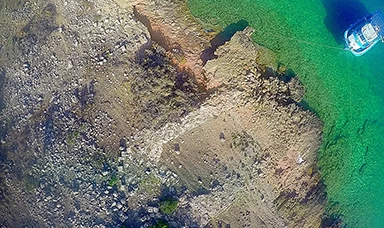 Dana Island, oldest ancient shipyard
Dana Island, oldest ancient shipyard A Bronze Age Courier Service
A Bronze Age Courier Service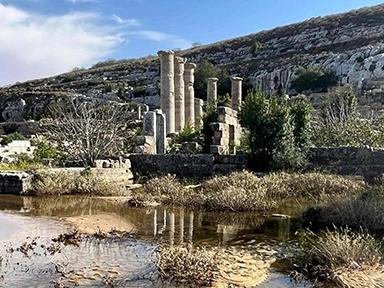 Cyrene's Lost Treasures
Cyrene's Lost Treasures The Invisible Enemy
The Invisible Enemy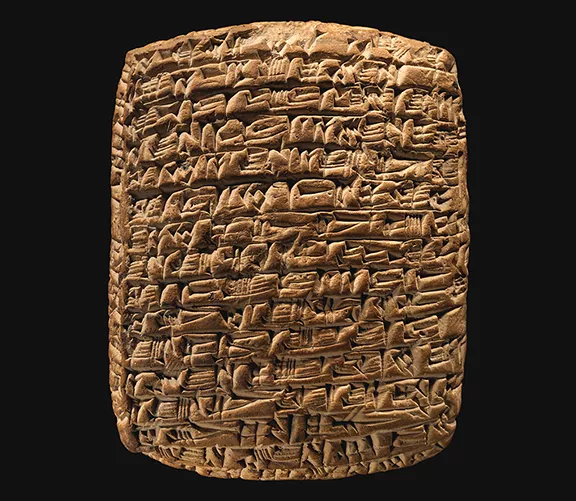 The World's First Company
The World's First Company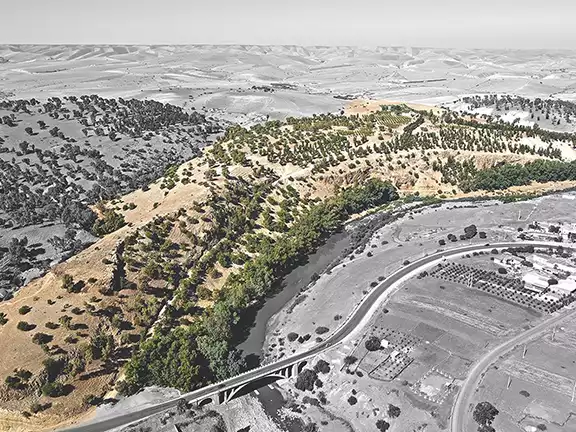 The Copper Age Site of Oued Beht
The Copper Age Site of Oued Beht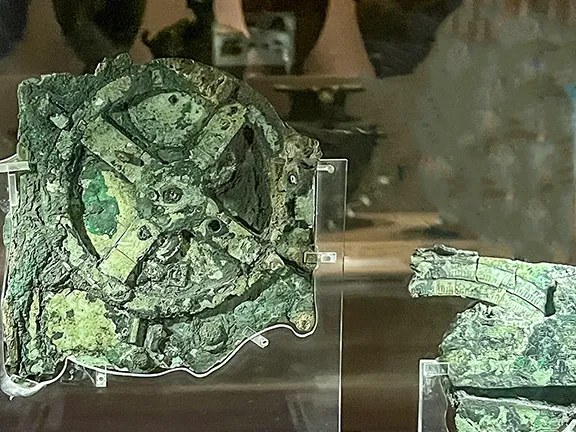 How the Antikythera Mechanism Works
How the Antikythera Mechanism Works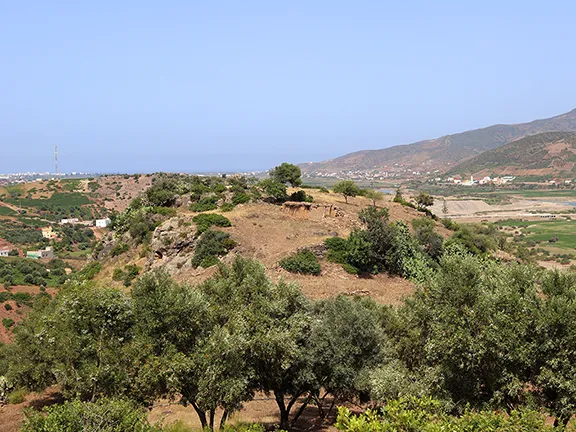 Kach Kouch and Iberia
Kach Kouch and Iberia Mediterranean Diet Evolution
Mediterranean Diet Evolution Hidden Colours of Ancient Statues
Hidden Colours of Ancient Statues Cleopatra: Egypt's Last Pharaoh
Cleopatra: Egypt's Last Pharaoh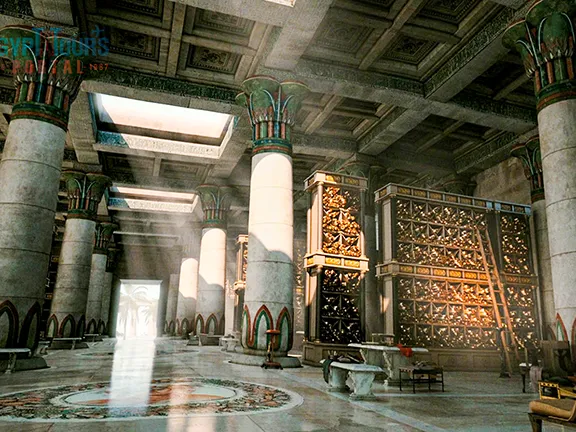 Alexandria Library's True Fate
Alexandria Library's True Fate Six Great Ancient Libraries
Six Great Ancient Libraries Ancient Greek Technology
Ancient Greek Technology Broadening Horizons
Broadening Horizons The Nadītu Investors of Sippar
The Nadītu Investors of Sippar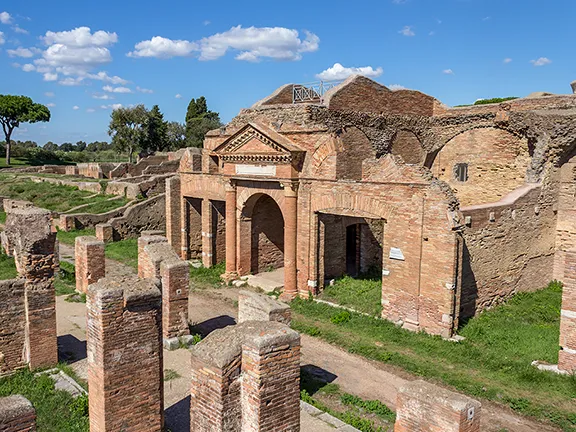 New light on Hadrian
New light on Hadrian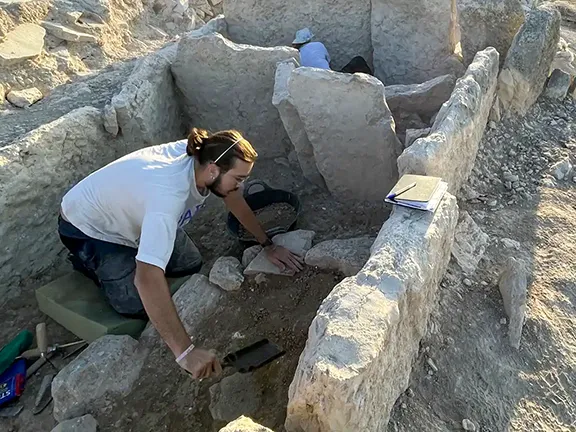 The Dolmens of La Lentejuela Teba
The Dolmens of La Lentejuela Teba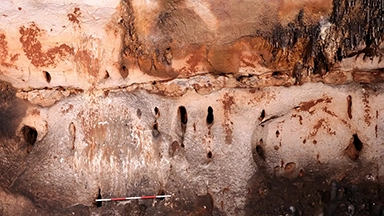 New Cave Art Discovery in Valencia region
New Cave Art Discovery in Valencia region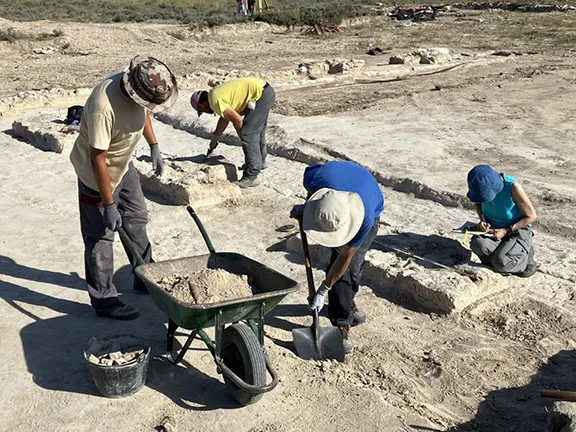 La Cabaneta Oldest Roman Forum in Iberian Peninsula
La Cabaneta Oldest Roman Forum in Iberian Peninsula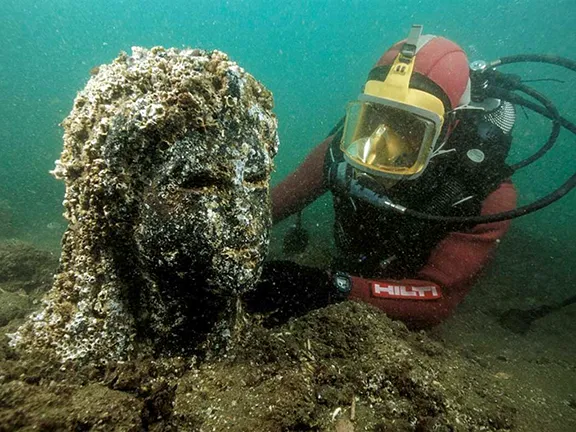 New Discoveries at Ancient Sunken City of Thonis-Heracleion
New Discoveries at Ancient Sunken City of Thonis-Heracleion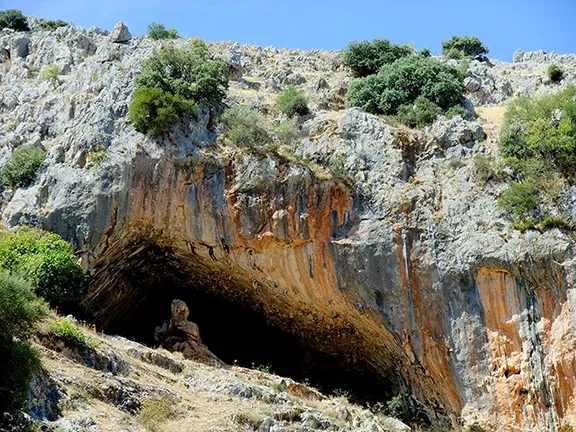 Europe's Oldest Shoes Found: 6,000-Year-Old Sandals Woven from Grass
Europe's Oldest Shoes Found: 6,000-Year-Old Sandals Woven from Grass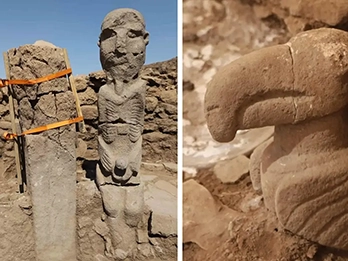 Discoveries at Gobekli Tepe and Karahan
Discoveries at Gobekli Tepe and Karahan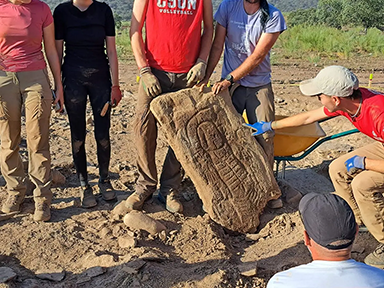 Decorated Stelae found in Canaveral de Leon, Spain
Decorated Stelae found in Canaveral de Leon, Spain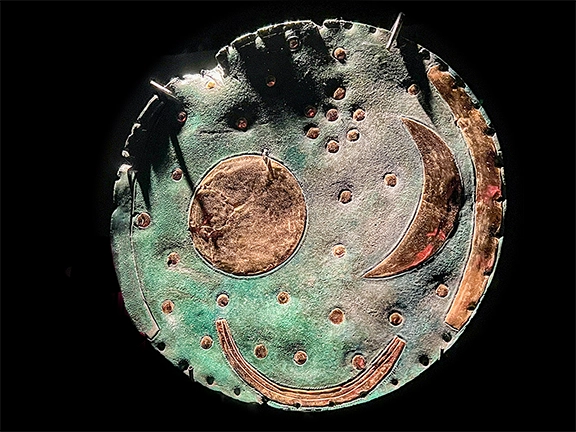 The Nebra Sky Disc: A Bronze Age Calendar
The Nebra Sky Disc: A Bronze Age Calendar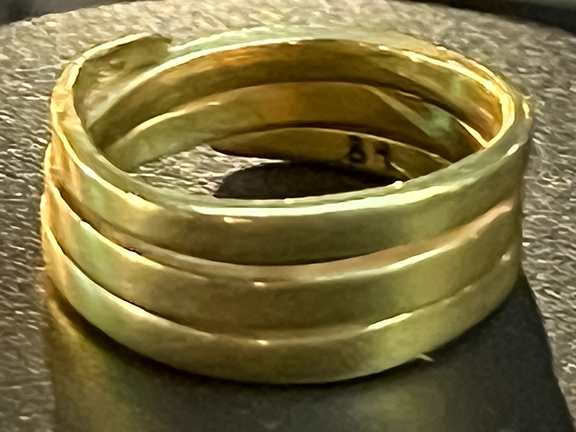 Bronze Age: A Golden Age for Jewellery
Bronze Age: A Golden Age for Jewellery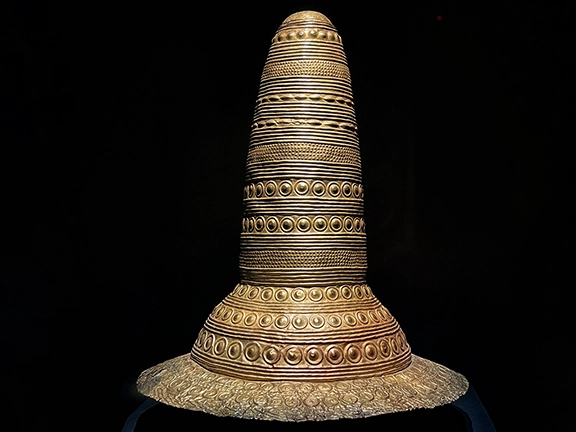 The Golden Hat of Schifferstadt
The Golden Hat of Schifferstadt